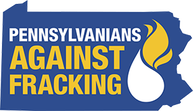Farmer's Letter to Governor Wolf
January 9, 2016
Dear Governor Wolf,
We, the concerned farmers of Pennsylvania, begin this letter with both hope and fear. Our hopes are that you will read the following with careful consideration and that our heartfelt sentiments will reach you. Our fears are for our way of life, which many of us find to be balancing precariously in the face of destructive activities like hydraulic fracturing and the looming threat of climate change. It is hard not to feel like the odds are stacked against us -with the scale of gas development and its swiftness in encompassing our communities. Faced with big industries with deep pockets as unwelcome neighbors, moving in whether you have leased your land or not, there seems to be little we can do. With that in mind we are turning to our government, again with the hope that our voices do matter, that our concerns will be taken seriously and our Governor will prove himself to be for the people.
As you well know, Pennsylvania has a long history of agriculture, one in which all Pennsylvanians take much pride. Many farms in our beautiful state have been in families for generations and there is a strong movement today among young adults to turn back to the land. Young or old, all farmers are facing new challenges in an era where climate change is not right around the corner – indeed it has arrived and is already making itself known! Many of us have taken on the challenge of organic agriculture not only to provide healthy food to our neighbors but also to help restore the soil and reduce climate-changing practices like the use of fossil fuel fertilizers, monoculture crops and barren fields.
One of the major industries contributing to climate change is also booming in our state – hydraulic fracturing. To some those two words might sound like profit, but to many farmers those same words are tantamount to a death sentence.
When you think of a Pennsylvania farm, what comes to mind? Is it rolling fields, dotted with cows contentedly grazing, rows of corn shooting towards a clear blue sky? An old house with ducks in the nearby pond and a happy farm dog sprawled in the yard? Or is it a loud, busy, filthy, explosive industrial site, a looming oil derrick, a night sky lit up with malodorous, toxic gas flaring, all stars obliterated by light pollution? The latter is a fear for many farmers, and an unfortunate reality for many others.
It's not just a disruption of the picturesque dream that's the problem. There is no question that people living near gas operations are being exposed to dangerous pollutants. Fracking activities have been proven to have very real and dangerous consequences for those living or working nearby.
Governor Wolf - we, the farmers of Pennsylvania, are asking you to show your good judgment and commitment to the well-being of Pennsylvanian citizens and look at the facts. Stop the drilling! Bring in jobs for clean energy solutions, stop the cycle of fossil fuel consumption.
Farmers: you can add your name to the letter by clicking here.
Dear Governor Wolf,
We, the concerned farmers of Pennsylvania, begin this letter with both hope and fear. Our hopes are that you will read the following with careful consideration and that our heartfelt sentiments will reach you. Our fears are for our way of life, which many of us find to be balancing precariously in the face of destructive activities like hydraulic fracturing and the looming threat of climate change. It is hard not to feel like the odds are stacked against us -with the scale of gas development and its swiftness in encompassing our communities. Faced with big industries with deep pockets as unwelcome neighbors, moving in whether you have leased your land or not, there seems to be little we can do. With that in mind we are turning to our government, again with the hope that our voices do matter, that our concerns will be taken seriously and our Governor will prove himself to be for the people.
As you well know, Pennsylvania has a long history of agriculture, one in which all Pennsylvanians take much pride. Many farms in our beautiful state have been in families for generations and there is a strong movement today among young adults to turn back to the land. Young or old, all farmers are facing new challenges in an era where climate change is not right around the corner – indeed it has arrived and is already making itself known! Many of us have taken on the challenge of organic agriculture not only to provide healthy food to our neighbors but also to help restore the soil and reduce climate-changing practices like the use of fossil fuel fertilizers, monoculture crops and barren fields.
One of the major industries contributing to climate change is also booming in our state – hydraulic fracturing. To some those two words might sound like profit, but to many farmers those same words are tantamount to a death sentence.
When you think of a Pennsylvania farm, what comes to mind? Is it rolling fields, dotted with cows contentedly grazing, rows of corn shooting towards a clear blue sky? An old house with ducks in the nearby pond and a happy farm dog sprawled in the yard? Or is it a loud, busy, filthy, explosive industrial site, a looming oil derrick, a night sky lit up with malodorous, toxic gas flaring, all stars obliterated by light pollution? The latter is a fear for many farmers, and an unfortunate reality for many others.
It's not just a disruption of the picturesque dream that's the problem. There is no question that people living near gas operations are being exposed to dangerous pollutants. Fracking activities have been proven to have very real and dangerous consequences for those living or working nearby.
- Air Quality - A study, An Exploratory Study of Air Quality near Natural Gas Operations , found 44 hazardous chemicals in the air, many of which cause cancer and damage to the brain, nervous system lungs, kidneys, cardiovascular system, endocrine system, genes, liver, immune system, skin, eyes and other parts of the body. The negative health effects are frightening. There is now a significant body of scientific, medical, and journalistic findings demonstrating risks and harms of fracking.
- Water Quality - For a farmer, clean water is the basic necessity. However, with the fracking we have seen known carcinogens injected through our aquifers or sitting in frack ponds. Known endocrine disruptors make up around 40% of the chemicals added to fracking fluids. Leaks, spills, and unintended releases are abundant. Due to the growing periods of drought from climate change, farmers increasingly need to irrigate our crops. Animals need abundant supplies of pure water. If a farmer can't be sure of their water, they can't be sure of the quality of their products or their ability to continue to farm.
- Food Safety - Our food safety is in question around fracking sites. “There are a variety of organic compounds, metals and radioactive material that are of human health concern when livestock meat or milk is ingested,” says Motoko Mukai, a veterinary toxicologist at Cornell’s College of Veterinary Medicine. Chemicals used in the fracturing process can leach into the groundwater and soil, poisoning livestock and farmer alike. When toxic components spread out, they aren't just sitting in stasis – the plants and insects exposed to these toxins absorb them, and they slowly work their way up the food chain, accumulating in the bodies of larger animals like cows and fish faster than their natural filters can keep up with. When we eat meat from an animal that is fed on contaminated grasses and feed, we risk those toxins making their way into us.
- Business Concerns - Farmers who are certified organic face the loss of their market and their certifications when toxic industries move in next door. Customers who value the quality of their food are unwilling to take a chance on milk, meat or produce grown next to industrial sites. The pipelines, compressor stations, and traffic that go along with the natural gas industry all have their own hazards – explosions, evacuations, gas leaks, and illegal dumping are par for the course but they are not risks that we should be forced to endure. Farmers conforming to organic practices know that they cannot use chemically-treated fence posts because the chemicals will leach into the soil and become a part of the forage our animals consume. How much worse is it that tons of toxic chemicals are allowed to be emitted from fracking well sites and other infrastructure to settle on our pastures?
- Climate Change - Hydraulic fracturing is causing problems to farmers every day, but as a major contributor to climate change the natural gas industry is leading us even further into a climate crisis where the farmer will be the first to feel the effects. Our livelihoods depend on the already hard to predict whims of nature, the thought of shifting seasons, droughts paired with torrential downpours, severe storms, and other extreme weather events is beyond frightful. Irregular temperature fluctuations have increasingly cost fruit farmers their crops, and have made it harder to plan planting and harvest times. New pest problems, like the spotted wing drosophila and the massive rise in tick populations, and diseases are cropping up as our state's climate slowly shifts. Farmers see small but significant changes like these every year, and they are becoming more numerous and obvious.
- Health impacts, present now and yet to come - Farmers living near well sites (as well as many others in rural gas fields that have sprung up around their homes) are suffering right now from health impacts almost too numerous to mention. The studies, many of them now Pennsylvania-specific, are piling up and finding again and again that people's’ children are getting a poor start in life if they live near well pads, and that neurological and cardiovascular and dermatological problems are more prevalent and growing near fracking sites. A comprehensive health impact study is needed, and the opportunity for doing that study is ripe with 10 years of hospital and insurance data from the fracked areas already in hand, yet you refuse to order such a health impacts study. That makes many of us out on the farms next to fracking feel like we are asked to sacrifice our health and even our lives for the sake of a few large corporations profiting from fracking.
Governor Wolf - we, the farmers of Pennsylvania, are asking you to show your good judgment and commitment to the well-being of Pennsylvanian citizens and look at the facts. Stop the drilling! Bring in jobs for clean energy solutions, stop the cycle of fossil fuel consumption.
Farmers: you can add your name to the letter by clicking here.


